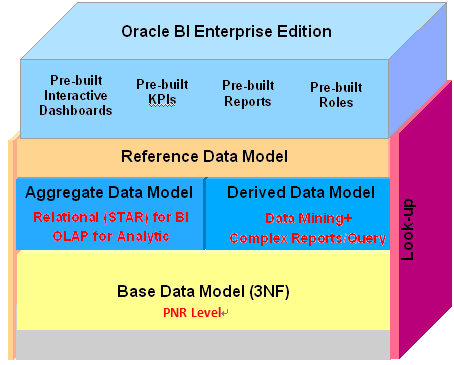OADM Architecture Overview
Data Model Is Actually a Set of Data Model Layers
In OADM, the data is stored in special-purpose layers or groupings of tables that include:
- Reference and Lookup tables, which used to store master reference and dimensional data
- Base, Derived, and Aggregate tables, which are used to store transaction and fact data at different levels of granularity. Base tables are used to store the transaction data at the lowest level of granularity, whereas Derived and Aggregate tables are used to store consolidated and summarized transaction data.

Data models:
- Provide convergence to a large scale ‘open’ data model
- Can be used for service-oriented architecture (SOA), operational data stores (ODS), or other data integration efforts
- Provide improved precision due to common definition
- Are relevant (up-to-date)
- Are repository driven
Customers are not forced to use the entire OADM solution.
If a customer does not care about detailed analysis or historical data, he or she can implement just the Derived and Aggregate data model layers. Likewise, the customer can implement the Base layer without the Derived or Aggregate layer.
Explanation: Since the aggregate layer consists of materialized views (MVs) by default, some of the MV and derived table loads would fail if the base tables are not present and populated with data. We provide an alternate set of aggregate 'tables' for use in this case. Moreover, each MV has a corresponding view. The sample reports access this view, not the MV directly. In the case in which the base tables are not loaded, the aggregate tables would take the place of the views; therefore, no changes are necessary in the reports.
Optional packaged OADM sample reports access the Derived and Aggregate layers only. Customers need not use these packaged sample reports; they can develop their own reports, using their own tool of choice.
Each of these data model layers will be examined in this module.